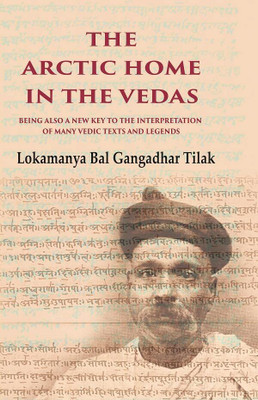The Arctic Home in the Vedas Being also a New Key to the Interpretation of Many Vedic Texts and Legends(Paperback, Lokamanya Bal Gangadhar Tilak)
Quick Overview
Product Price Comparison
About The Book: This book, a sequel to "Orion or Researches into the Antiquity of the Vedas" published in 1893, challenges the prevailing notions about the age of Vedic literature. It asserts that astronomical data in the Vedas can provide more accurate dating than previous estimates. This book challenges conventional beliefs about the age of Vedic literature, suggesting that the Vedic period dates back to around 4500 B.C., based on astronomical data. The author recounts his research journey and legal issues related to his writings. Additionally, the book proposes that the origins of Aryan civilization predate the oldest Vedic period by several thousand years, dating back to around 8000 B.C., in an Arctic and interglacial homeland. Passages from the Rig-Veda and Avesta are examined to support this theory, emphasizing the need for interdisciplinary collaboration in scholarly pursuits. Furthermore, this book challenges the notion that Aryan civilization emerged during the oldest Vedic period by presenting geological and mythological evidence. It suggests an Arctic and interglacial origin for the primitive Aryan homeland around 8000 B.C., contrasting with the earlier belief of a 4500 B.C. Vedic start. The author cites Rig-Veda and Avesta passages to support this, underlining the necessity for interdisciplinary cooperation in scholarly endeavors. About The Author: Lokamanya Bal Gangadhar Tilak (1856-1920), endeared as Lokmanya, was an Indian nationalist, teacher, and an independence activist. He was one third of the Lal Bal Pal triumvirate. Tilak was the first leader of the Indian independence movement. The British colonial authorities called him "The father of the Indian unrest. Keshav Gangadhar Tilak was born on 23 July 1856 in an Marathi Hindu Chitpavan Brahmin family in Ratnagiri, the headquarters of the Ratnagiri district of present-day Maharashtra (then Bombay Presidency). His ancestral village was Chikhali. His father, Gangadhar Tilak was a school teacher and a S


